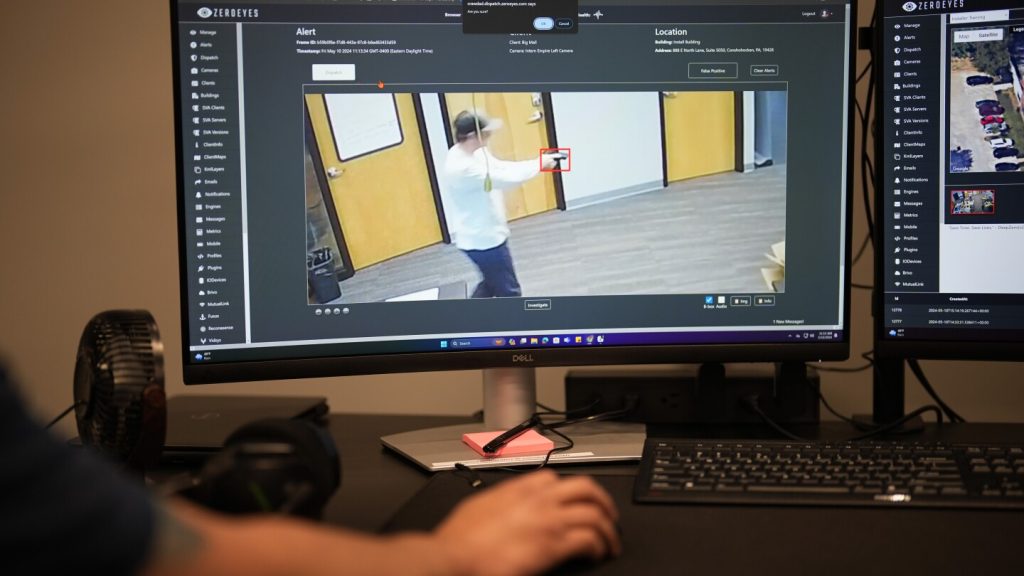In a recent development, Kansas is considering offering up to $5 million in grants for schools to install surveillance cameras with artificial intelligence systems capable of detecting people carrying guns. However, the schools must meet specific criteria, including using patented AI software designated as qualified anti-terrorism technology and already in use in at least 30 states. ZeroEyes, a rapidly growing firm founded by military veterans after the Marjory Stoneman Douglas High School shooting, is currently the only company that meets all the criteria required by the legislation pending before Kansas Governor Laura Kelly.
The legislation reflects the growing school security industry, with some companies successfully persuading policymakers to integrate their solutions into state laws. ZeroEyes appears to be the only qualified firm for firearms detection programs in several states, including Michigan, Utah, Florida, Iowa, Colorado, Louisiana, and Wisconsin. Missouri recently passed legislation providing $2.5 million in matching grants for schools to purchase firearms detection software classified as qualified anti-terrorism technology, further showcasing the company’s influence in the industry.
Using artificial intelligence, ZeroEyes surveillance cameras identify visible guns and alert a staffed operations center staffed by former law enforcement officers and military veterans. The goal is to detect and address potential threats before they escalate. While the technology is widely accepted, some question the legislative tactics employed by companies like ZeroEyes. Concerns have been raised about the focus on specific products, leaving fewer resources for other essential school safety measures, such as electronic door locks and security staff.
As the technology can be costly, some states are establishing grant programs to assist schools in implementing firearms detection systems. Florida allocated approximately $929,000 for the implementation of ZeroEyes technology in schools in two counties, showcasing the financial investment required. While ZeroEyes is not the only company offering firearms detection systems, competitors like Omnilert also provide similar services. Omnilert, however, does not yet have a patent for its technology or the designation of qualified anti-terrorism technology by the Department of Homeland Security.
In Iowa, legislation requiring schools to install firearms detection software was amended to give companies time to receive federal designation as anti-terrorism technology. This amendment was intended to incentivize companies to develop the necessary technology without providing advantages to specific companies. In Kansas, the legislation’s requirements essentially limit the grant eligibility to ZeroEyes, raising concerns about anti-competitive practices. Kansas state Rep. Adam Thomas initially proposed naming ZeroEyes in the funding legislation but later revised it to include criteria that align with ZeroEyes’ capabilities.
Despite the criticisms, some lawmakers defend the provisions, citing student safety and the urgency of implementing effective technology without delays. The $5 million appropriation may not cover all schools initially, but there is potential for additional funding if ZeroEyes technology proves successful in preventing gun violence. The impact of integrating AI-driven firearms detection systems into schools remains to be seen, with proponents emphasizing the importance of prioritizing student safety in the face of increasing security challenges.


